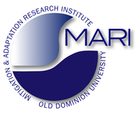Implementing and Monitoring the Sustainable Development Goals in the Caribbean: The Role of the Ocean
News
|
Identifying and Articulating Knowledge Needs for the Implementation and Monitoring of the Sustainable Development Goals in Caribbean Small Island States and Matching Those Needs to Knowledge, Tools, and Data. Session DescriptionSession 2: Interdependencies and interactions of SDGs, Targets and Indicators in Caribbean Small Island StatesCo-Chairs: Danielle Evanson, Dr. Hans-Peter Plag This session addressed the wicked problem presented by SDGs and focus on the interconnected nature of the SDGs and the potentially large economic burden associated with progress towards the Targets, as well as the challenge that those attempting to solve the problem are to some extent causing the problem. In a transdisciplinary dialogue, the role of the ocean for the interconnected SDGs was characterized taking into account the many interdependencies between the SDGs. The session considered that most of the SDGs address the socio-economic and environmental systems based on land, and that both the human and non-human environment in SIDS is crucially dependent on the surrounding ocean. While this dependency is grossly similar it is discretly different in the different SIDS, and both the similarities and differences were elaborated on. The goal was to identify those applications and tools that are used in generating knowledge addressing the interdependencies across boundaries between SDGs, government departments and societal sectors. In two initial presentations, the interdependencies of SDGs were discussed and a framework for the implementation of SDG 14 was presented. The next presentation provided local examples of issues that hamper preservation efforts. In the subsequent panel discussion, the panelist addressed different aspects of SDG implementation from the viewpoints of trade, GEO initiatives, international science organizations and regional NGOs. The participants then split up for a table discussion round. The first table discussion round focused on the contribution of various stakeholders to the SDG implementation. For each table topic and topical area, the participants were asked to consider the following questions:
The participants grouped into five tables with the topics:
The outcomes of the discussions were reported back to the plenary. |
This workshop was sponsored by:
 under grant 80NSSC17K0241 |
 |
 |
 |
 |